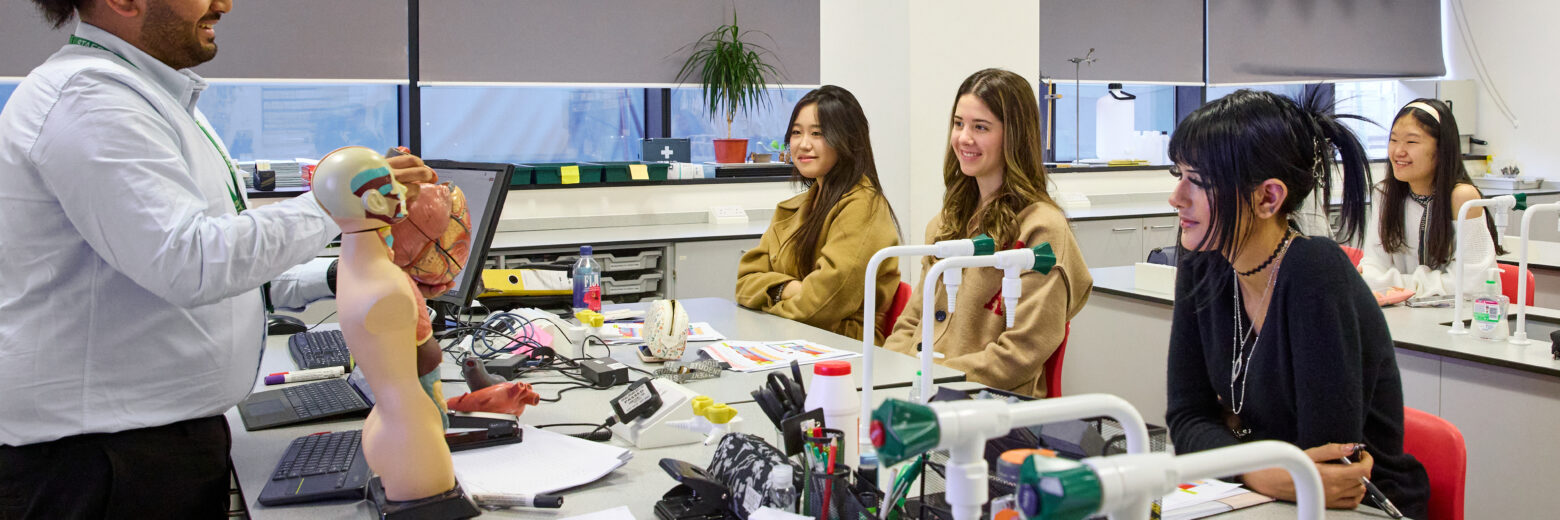PSYCHOLOGY
Psychology is the science of the mind. The human mind is the most complex machine on Earth. It is the source of all thought and behaviour.
WHAT IS PSYCHOLOGY?
Psychology is the science of the mind. The human mind is the most complex machine on Earth. It is the source of all thought and behaviour. Any attempt to explain why humans think and behave in the way that we do will inevitably be linked to one or another branch of psychology. The different disciplines of Psychology are extremely wide-ranging.
In A level Psychology units include: Cognitive Psychology: Memory, Research Methods and Statistics, Developmental Psychology (attachment), Social Psychology, Origins of Psychology, Biological Psychology, behavioural, Social and Cognitive approaches and Psychopathology. In the second year of Psychology you will study Schizophrenia, Bio-psychology, Issues and Debates, Relationships, Aggression, Research methods and Statistics and the Psychodynamic and Humanistic approaches in addition to the approaches you have learned year 1. What all these different approaches to Psychology have in common is a desire to explain the behaviour of individuals based on the workings of the mind. In every area, psychologists apply scientific methodology; they formulate theories, test hypotheses through observation and experiment, and analyse with statistical techniques that help them identify important findings.
WHAT IS PSYCHOLOGY AT DLD?
- By studying A Level Psychology at DLD you will participate in a journey through some of the classic and most influential studies in each discipline, combined with modern day thinking.
- Teaching consists of a range of methods and activities that allow for different learning styles and encourages individuals to express their knowledge and understanding in a variety of ways.
- Activities include writing a report in the role of a psychologist, class replications of original studies and crucially, exam technique practice.
As well as teaching the subject fully, the classes aim to prepare you for higher education with emphasis on confident critical thinking and independent learning, in a relaxed and supportive environment.
HOW IS PSYCHOLOGY AT DLD ASSESSED?
For the AS qualification the assessment is as follows:
| Weighting | Format | |
| Paper 1: Introductory topics in Psychology | 50% | 1 hour 30 minutes |
| Paper 2: Psychology in context | 50% | 1 hour 30 minutes |
For the 2 year A Level qualification the assessment is as follows:
| Weighting | Format | |
| Paper 1: Introductory topics in Psychology | 33.3% | 2 hours |
| Paper 2: Psychology in context | 33.3% | 2 hours |
| Paper 3: Issues and options in Psychology | 33.3% | 2 hours |
Exam Board: AQA(A)
WHAT DO I NEED BEFORE PSYCHOLOGY AT DLD?
You will need a Level 5/Grade C or equivalent in English, Maths and Science as all units in Psychology include these skills. Appreciation that it is a scientific subject which requires analysis of the research methods, data and conclusions presented by psychologists is important for academic success in this subject. Psychology has a lot of specialist terminology so your written English needs to be of a high standard as there essays in each exam where you have to put forward and evaluate different points of view.
GOOD SUBJECT COMBINATIONS
Psychology lies at the intersection of many other different disciplines, including Biology, Medicine, Philosophy, Anthropology, Sociology, and Linguistics. For example, Neuropsychology is allied with Biology, since the aim is to map different areas of the brain and explain how each relates to different brain functions like memory or language. However a number of students successfully combine Psychology with English Literature, Drama or Art.
WHAT DO I DO AFTER DLD?
Since Psychology is the study of what underpins human behaviour, its application in future careers is widespread. This can range from managing people, marketing products, practising Law and of course, specialising as a psychologist. For a career in Psychology you would need to first obtain an undergraduate degree that is recognised by the British Psychological Society and then specialise in one area, for example, Clinical & Counselling Psychology; Forensic Psychology; Sport Psychology; Health Psychology; Occupational Psychology and Neuropsychology. University courses in Psychology are popular and vast, but we are available to help you in finding a course that is right for you.
QUESTIONS ON PSYCHOLOGY COURSES
Q. Can I do the course in one year?
A. No it is a linear subject and therefore you need the knowledge and underpinning skills from Year 1 to be able to progress and do well in Year 2, in particular Research Methods and statistical knowledge from Year 1. Also year 2 is built on, in the June after year 1 exams when we start the new topics.
ENTRY REQUIREMENTS ON PSYCHOLOGY FOR INTERNATIONAL STUDENTS
To study A Levels, your current or pending exam results should be equivalent to or higher than GCSE (General Certificate of Secondary Education) in at least 5 subjects and a minimum level of English equivalent to IELTS 5.5.
At the start of each academic year of study students following an A Level course without a pass at Level 5/Grade C in GCSE or IGCSE English Language or with an Academic English score below 6.5 overall must join an Academic English training course for the duration of the academic year which will be timetabled alongside A Level lessons.
If your level of English is not sufficient to meet the entry criteria for the A Level programme you will normally be offered a place on the one year Academic Preparation Course (pre A Level) in order to bring your English skills up to the required level.



